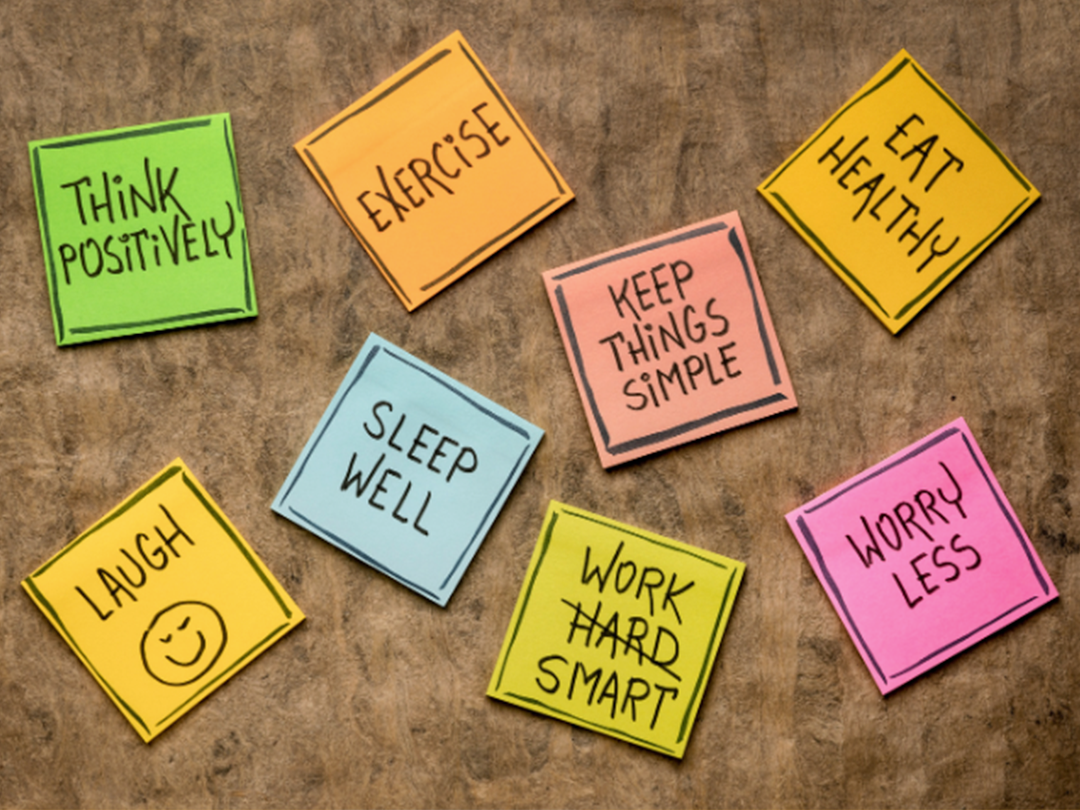Maintaining a healthy lifestyle is a powerful way to prevent or treat some mental health conditions. What’s considered “healthy” is subjective, but adequate sleep, a balanced diet, exercise and good stress management are practices that benefit the majority of the population.
While we’re in the “new year, new me” phase, it may be tempting to overhaul your current routine. That approach works for only a small percentage of people, usually for a limited period of time. For most of us, making tiny adjustments over a long period of time is the most effective way to sustainably transform our lives.
Change isn’t easy, but with a practical approach it’s possible to follow a lifestyle that will help you manage, and possibly prevent, mental health challenges.
Here are 4 tips for building everyday habits that support your mental health:
1. Identify the non-negotiables…and say “no” to everything else. Stress and overwhelm can take a toll on mental health.They often stem from experiencing a high number of demands and unrealistic expectations and insufficient resourcing (energy, stamina, etc). Set priorities for the things you can reasonably fit into in your life now – set aside the “nice to haves” for a different time. Use this list as a guideline for decision-making to help you focus on the things that enrich your life and prevent you from taking on more than you can handle.
2. Make small changes. If you want to make changes to an area of your life (e.g. diet, exercise plan, appearance, etc), start with one thing at a time. If you haven’t exercised in awhile, start by working out a few times a week for 30 minutes. As you get used to working out as part of your normal routine, you’ll organically add more or longer workouts. Want to revamp your diet? Start with adding more protein, then fruit and vegetables, then reducing sugar and so forth. Apply this start small principle to any area you’re trying to adjust. Remember, small changes lead to long-term adoption.
3. Habit stack. Speaking of habits, consider stacking your new lifestyle changes with long-standing parts of your routine. Research shows that connecting a new habit with an old one is an impactful way to change behavior. For example, if you plan to start journaling, add it to your morning routine after you make coffee to connect the two activities in your brain and behavior pattern. Check out this article by James Clear, the author of Atomic Habits, sheds more background and examples on habit stacking.
4. Track your progress. It’s important to celebrate and of your wins, both big and small, but without a tracking mechanism, it can be easy to overlook your progress! There are many health tracking and fitness apps that make it easy to monitor your activities and milestones. Bonus – gathering data on your lifestyle will make your doctor’s visits more productive AND help you feel more empowered around your health and mental health state.
A healthy lifestyle isn’t the sole answer to mental health challenges, but it’s a great start. Being rested, fueled with nutrients and energized provide you with the energy to work through difficult periods in life. We’re rooting for you as you take small steps towards adopting a healthier lifestyle in 2024.

